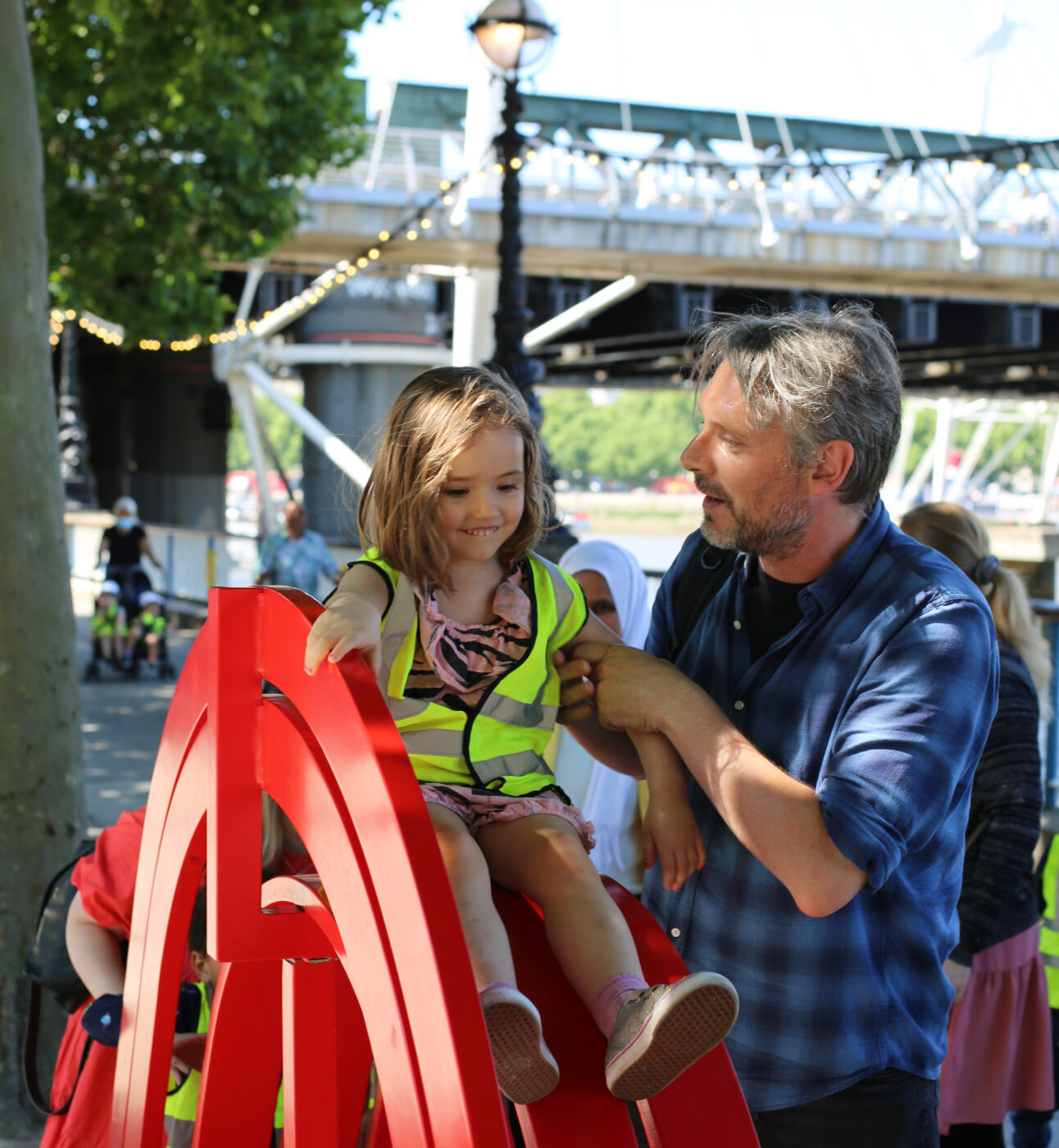
Any man can be a father, but let’s celebrate the importance of Dads!
“Any man can be a father but it takes someone special to be a Dad.” – Anne Geddes I recently wrote a book with the wonderful Alice Sharpe to celebrate…
November 21st 2018
Every year we have the LEYF annual debate, named in honour of Margaret Horn, student of Octavia Hill and the first paid director of what was then a local charity Westminster Health Society. The organisation has changed immeasurably since then, but we still retain an ethos of belonging and inclusivity that was alive in her day.
This is the 11th Annual Margaret Horn Debate. The subject is new research provided by children in answer to the question “Do Men in Childcare Matter”? Our Chair this year is Professor Paul Ramchandani, LEGO® Professor of Play in Education, Development and Learning who has researched play for many years and when we met immediately connected about the importance of having men and dads in nurseries.
For the last eight years we have been campaigning to create more gendered balanced nursery environment through our work on Men in Childcare. Our first report was written in 2012 and is available online. Since then the debate has grown louder and we have had more national Men in Childcare campaigns. We also have a DfE taskforce (although we have yet to see any action). Much of the campaigners’ energy continues to be more heavily invested in explaining why it matters to have men in childcare and why a gender balanced workforce tends to be more successful in all walks of life. Two new books addressing these issues are due for publication. One by David Wright who has worked alongside LEYF since the beginning and leads the Southampton MiC (SAMEY). The other is by Jo Warin from the University of Lancaster who has been commissioned to conduct some international research between the UK and Norway, LEYF is the London partner.
However, while the conversations about the benefits of a gender balanced workforce continue, very little attention has been paid to the views of children. At this early stage of their development, children have a unique opportunity to make up their own minds about what boys and girls can do or be. However, if a balanced approach is not achieved, social norms learned in families, communities and peer groups will influence and reduce their choices, aspirations and social achievements. This then perpetuates the stereotypical gendered roles, with boys potentially rejecting nurturing and caring careers and girls limiting their potential for careers in science, technology, engineering and maths; skills and knowledge which will no doubt be essential for the next phase of our quickly changing world.
In 2012 Sue Chambers conducted some pioneering research with the children. However, sadly Sue died earlier this year but before she lost her fight to cancer, we had planned to do some more detailed research about the views of children. A chance conversation with Helen Perkins from University of Wolverhampton (over a bottle of wine and pizza in Bologna at the EECERA conference, yes I recommend it) resulted in an agreement that the University would partner us and conduct the research in Sue’s honour. I think she would have definitely approved of a partner willing to strike a deal over a glass of wine.
We conducted the research in seven of the LEYF nurseries and interviewed 28 children. The children were boys and girls attending nurseries with both male and female staff. This research was based on the original format, with the addition of some specific questions relating to literacy activities. The children were asked by their own teacher to code a set of the same photos of play activity to a specific gender.
The outcome is interesting. In the original report findings were mixed. Children favoured staff who were good at activities but there were also some gendered patterns such as girls playing with dolls chose female practitioners and more worryingly boys associated stories and singing were only with female staff.
Dr Helen Perkins and Tracey Edwards from the University of Wolverhampton who led the study explain, “Children need to see our diverse society reflected in their nurseries. It is not just about gender but the opportunity for children to have choice. It is the characteristics and attributes of the teacher that provides a rich learning environment and allows all children to embrace positive non-stereotypical gendered behaviours.”
However, in this new report there was a change in that a much higher proportion of children didn’t associate an activity with the gender of the staff. They chose staff that did the activity “best”.
“She sings quietly and gently”
“She can hold a spider and not be scared”
“He cooks in the mud kitchen”
“He can wear the Elsa dress with me”
In terms of reading and singing, the majority of children selected both male and female teachers to share these activities; a clear improvement from the previous research. Interestingly, there was some analysis that having a cosy space and our leather sofas designed to encourage snuggle times for reading was more helpful in terms of creating an inclusive culture of reading. The children were given a selection of books to look at and eight were chosen as the preferred choice to be read by male and female teachers.
However, there was evidence in some nurseries that the personal values and beliefs of male and female staff unconsciously impacted on their behaviour. This was apparent when coding everyday nursery activities such as dress up, football or rescuing a spider as either male or female pursuits.
There was an observation, yet to be proven, as to whether the LEYF social pedagogy which includes activities such as Drag Queen Story Time, yoga, male staff plaiting hair, multi generational activities and engagement of Dads combine to make the organisation a very inclusive one where it is easier to accept men or women doing whatever needs to be done.
The overall findings will help us improve practice and create a truly inclusive environment where staff model behaviour in a more conscious non-gendered way, so children are not linking activities, behaviours and opportunities to gender but actively seeking the best person for the activity. Ultimately, we need all staff to learn to plait hair, pick up worms, fix broken equipment or crawl under a bush in the garden! Children need teachers who reflect the world. We cannot underestimate just how important it is for both boys and girls to experience both men and women in nurturing and adventure roles if they are to grow up open to all opportunities.
However, the final point made by the researchers is most interesting. They comment that it’s not just about gender, children need to see our diverse society reflected in their pedagogy. The challenge is that we get to a point where we no longer need the Men in Childcare campaign to be a catalyst for diversity.
To spark the conversation in your setting here are some questions and be honest:
When did you last review how gendered your practice is?
Is there a subtle difference in the language used by male and female staff?
How do you structure story time?
Is snuggle time with all staff encouraged in your setting?
Where you have one make staff member, is he the novelty?
How do you know if you are not coding activities as male or female?
What are your parent’s perceptions?
This year’s Margaret Horn debate included the world premiere of the Men in Childcare film (also led by the children) “The Tea Party” which you can watch here (password: Soho2018).

“Any man can be a father but it takes someone special to be a Dad.” – Anne Geddes I recently wrote a book with the wonderful Alice Sharpe to celebrate…

“Any man can be a father but it takes someone special to be a Dad.” — Anne Geddes Dads matter and so says the research and me because I have…

Ordinary People Doing Extraordinary Things Podcast Series For International Men’s Day on the 19th November 2012, I invited as many men as I could find…